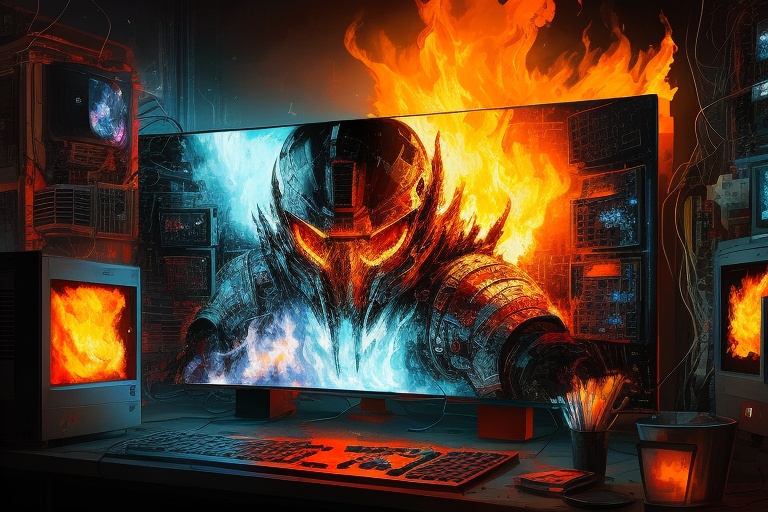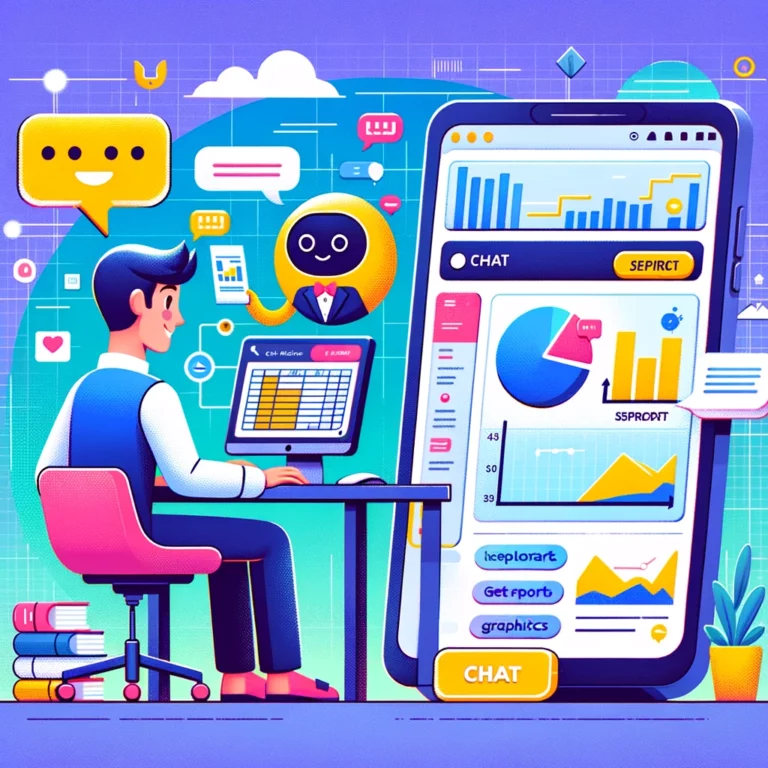The gaming industry has come a long way since the days of simple 2D graphics and basic gameplay. Today, we are witnessing rapid advancements in technology that are pushing the boundaries of what is possible in gaming. One area that promises to have a significant impact on the gaming landscape is Artificial Intelligence (AI). The integration of AI-powered Non-Playable Characters (NPCs) and game mechanics has the potential to revolutionize the way we play and experience games, drawing parallels to the immersive and highly realistic world depicted in the popular TV show Westworld. In this article, we will explore how the gaming industry is set to change with the advent of AI-driven NPCs and game mechanics, and discuss the potential implications of these developments.

AI-Powered NPCs: Bringing Characters to Life
In Westworld, the highly advanced AI-powered robots, or “hosts,” exhibit human-like behavior and emotions, making it nearly impossible for guests to distinguish them from real people. Similarly, the integration of AI in gaming promises to create NPCs that are more lifelike, intelligent, and responsive than ever before. This has several implications for the gaming industry:
-
Enhanced Realism and Immersion: AI-driven NPCs can exhibit complex emotions, respond dynamically to players’ actions, and adapt their behavior based on the evolving game environment. This creates a more immersive and realistic gaming experience, blurring the line between the virtual and real world.
-
Improved Storytelling: With AI-powered NPCs capable of exhibiting a wider range of emotions and reactions, game developers have the opportunity to create more nuanced and engaging narratives. These characters can form deeper connections with players, react to their decisions, and even evolve over time, making for a more compelling storytelling experience.
-
Dynamic Gameplay: AI-driven NPCs can adapt their behavior based on players’ actions, leading to a more dynamic and unpredictable gaming experience. This can result in new gameplay opportunities, as well as added replay value, as players can explore different paths and outcomes based on their choices and interactions with NPCs.

AI-Enhanced Game Mechanics: Redefining Gameplay
Beyond creating more lifelike NPCs, AI has the potential to revolutionize game mechanics by making them more adaptive, dynamic, and intelligent. Here are some ways AI-enhanced game mechanics can change the gaming landscape:
Procedural Content Generation: AI algorithms can be used to procedurally generate game content, such as levels, maps, and quests, based on player preferences and behaviors. This can result in a more personalized and varied gaming experience, as well as reduced development time and costs.
Adaptive Difficulty: AI can be employed to dynamically adjust game difficulty based on individual player abilities and preferences. This can lead to a more tailored and engaging gaming experience, as players can enjoy challenges that are neither too easy nor too difficult.
Intelligent Game Design: AI can help game designers create more complex and engaging game mechanics by analyzing player behavior and feedback. This can lead to the development of innovative gameplay features and mechanics that better cater to players’ needs and preferences.
Real-Time Player Feedback: AI can be used to analyze player behavior and provide real-time feedback and recommendations to improve their skills and performance. This can create a more interactive and engaging gaming experience, as players can receive personalized guidance and support based on their individual needs.
Enhanced Realism and Immersion: AI-driven NPCs can exhibit complex emotions, respond dynamically to players’ actions, and adapt their behavior based on the evolving game environment. This creates a more immersive and realistic gaming experience, blurring the line between the virtual and real world.
Improved Storytelling: With AI-powered NPCs capable of exhibiting a wider range of emotions and reactions, game developers have the opportunity to create more nuanced and engaging narratives. These characters can form deeper connections with players, react to their decisions, and even evolve over time, making for a more compelling storytelling experience.
Dynamic Gameplay: AI-driven NPCs can adapt their behavior based on players’ actions, leading to a more dynamic and unpredictable gaming experience. This can result in new gameplay opportunities, as well as added replay value, as players can explore different paths and outcomes based on their choices and interactions with NPCs.

The Ethical and Societal Implications of AI in Gaming
As AI continues to advance and become more integrated into the gaming industry, it is essential to consider the ethical and societal implications of these developments. Some potential concerns and questions include:
- The Impact on Human Interaction: As AI-powered NPCs become more lifelike and engaging, there is a risk that players may become more emotionally
attached to virtual characters and potentially neglect real-life relationships. It is essential to strike a balance between enjoying immersive gaming experiences and maintaining healthy social connections in the real world.
The Potential for Addiction: The increased immersion and personalization offered by AI-powered gaming experiences may heighten the risk of addiction for some players. Developing responsible gaming practices and providing support resources for those who may struggle with gaming addiction will be crucial in promoting a healthy gaming culture.
Ethical Considerations for AI NPCs: As AI-powered NPCs become more lifelike and exhibit complex emotions, ethical questions surrounding their treatment may arise. While these virtual characters are not sentient beings like the “hosts” in Westworld, it is important to consider the potential impact of players’ interactions with AI NPCs on their behavior and attitudes towards real-life individuals.
Data Privacy and Security: As AI algorithms analyze player behavior and preferences to create personalized gaming experiences, there is a risk of compromising players’ privacy and personal data. Ensuring that data collection and usage practices are transparent, secure, and respectful of players’ privacy will be essential in maintaining trust within the gaming community.
The Loss of Creative Control: With AI playing a larger role in content generation and game design, there may be concerns about the potential loss of creative control for developers. Ensuring that AI serves as a tool to enhance and support human creativity, rather than replacing it, will be crucial in maintaining the artistic integrity of the gaming industry.

The integration of AI-powered NPCs and game mechanics promises to revolutionize the gaming industry, offering unprecedented levels of realism, immersion, and personalization. Drawing parallels with the world of Westworld, the potential for AI to create lifelike virtual characters and adaptive game environments offers exciting possibilities for the future of gaming. However, as we embrace these advancements, it is crucial to consider the ethical and societal implications that may arise and strive to create a responsible and balanced gaming culture that benefits both players and developers alike.



